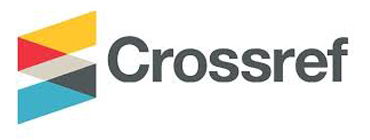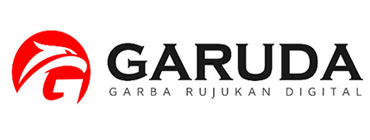THE CORRELATION BETWEEN STUDENT READING HABIT AND THEIR ABILITY OF WRITING NARRATIVE TEXT
Abstract
The objective of this study was to examine the reading behaviors of individuals learning the English language and see whether these behaviors are correlated with enhanced writing abilities. The study was conducted at 22 Tembung, MAS Al-Wasliyah. A total of 34 students were chosen randomly. In this research through random sampling technique. A questionnaire was used to measure how good the students’ reading habit and guided writing test to measure students’ ability of writing narrative text. After conducting the research, it was found that the average score of the students’ reading habit was 61.1%, that was in good level and the average score of the ability of writing narrative text was 72.4 that was categorized good as well. Moreover, the result of data analysis using SPSS shows that the correlation coefficient between the two variables (reading habit and writing ability) is 0.629, while the critical value for 34 students with 95% confidence is 0.339. Since the correlation coefficient obtained (0.629) is higher than the table value (0.339). It was concluded that there was a positive correlation between students‟ reading habit and their ability of writing narrative text.
Full Text:
PDFReferences
REFERENCES
Achmadi, H. (2014). Penerapan Model Assure DenganMenggunakan Media Power Point DalamPembelajaran Bahasa Inggris Sebagai Usaha PeningkatanMotivasi Dan PrestasiBelajarSiswaKelas X MAN SukoharjoTahun Pelajaran 2012/2013. JurnalTeknologi Pendidikan dan Pembelajaran, 2(1).
Adetunji, A., &Olagunju, T. O. (2014). A Study of the Effect of Home, School, and Personal Variables on Students’ Reading Comprehension Achievement.
Amir, N. F., Magfirah, I., Malmia, W., &Taufik, T. (2020). Penggunaan Model Problem Based Learning (PBL) Pada PembelajaranTematikSiswaSekolah Dasar:(The Use of Problem Based-Learning (PBL) Model in Thematic Teaching for the Elementary School’s Students). Uniqbu Journal of Social Sciences, 1(2), 22-34.
Aptensi, F., Yuliantini, N., & Lukman, L. (2018). HubunganKebiasaanMembacadengan Hasil Belajar Bahasa Indonesia SiswaKelas IV SDN 17 Kota Bengkulu. Jurnal PGSD: JurnalIlmiah Pendidikan Guru Sekolah Dasar, 11(1), 35-42.
Bano, J., Jabeen, Z., &Qutoshi, S. B. (2018). Perceptions of teachers about the role of parents in developing reading habits of children to improve their academic performance in schools. Journal of Education and Educational Development, 5(1), 42-59.
Blaang, A. (2020). MeningkatkankemampuanmenulisbahasaInggris Narrative Text Dengan Media Gambar Berseri Pada Siswakelas X IB2 SMA NEGERI 2 MAUMERE. JURNAL EKONOMI, SOSIAL & HUMANIORA, 1(12), 85-94
Clark, C., & Douglas, J. (2011). Young People's Reading and Writing: An In-Depth Study Focusing on Enjoyment, Behaviour, Attitudes and Attainment. National Literacy Trust.
Davidovitch, N., Yavich, R., &Druckman, E. (2016). Don’t throw out paper and pens yet: On the reading habits of students. Journal of International Education Research (JIER), 12(4), 129-144.
Diana, D., Milawasri, F. A., & Nadya, N. L. (2020). HubunganMembaca Teks Wawancara Terhadap Kemampuan Menulis Karangan Narasi Siswa Kelas VII SMP Negeri 32 Palembang. Jurnal Didactique Bahasa Indonesia, 1(1).
Fatah, A. (2018). Pengaruh Penguasaan Tata Bahasa dan Kosa kata Terhadap Kemampuan Menulis Teks Naratif Bahasa Inggris (Survei Pada SMK Swasta di Kota Tangerang). INFERENCE: Journal of English Language Teaching, 1(1)
Gaona, J. C. G., & Gonzalez, E. R. V. (2011). Relationship between reading habits, university library and academic performance in a sample of psychology students. Revista de la Educación superior, 15(157), 55-73
Indriati, A. (2020). Upaya Meningkatkan Hasil Belajar Bahasa InggrisTentang Teks NaratifLisan dan TulisBerbentuk Legenda SederhanaMenggunakan Metode Cooperative Learning Tipe Cooperative Script Pada SiswaKelas X SMA Negeri 1 Salem Kecamatan Salem KabupatenBrebes. Orbith: Majalah Ilmiah Pengembangan Rekayasa dan Sosial, 15(3), 167-174.
Khalisa, N. (2018). The correlation between students’ reading habit and their writing ability (Doctoral dissertation, UIN Ar-Raniry Banda Aceh).
Langan, J. (2007). Teaching Writing. New York: Oxford University Press.
Sari, D. M., & Saragih, G. (2019). The Effects of grammar Mastery and Reading Habit Towards Students’ Writing Skill in Recount Text. Inference: Journal of English Language Teaching, 2(3), 211-222.
Martavia, R. F., Thahar, H. E., & Asri, Y. (2016). Hubungan minat baca dengan keterampilan menulis narasi ekspositoris siswa kelas VII SMP Negeri 11 Padang. Jurnal Pendidikan Bahasa dan Sastra Indonesia, 5(2), 363-369. Ansari, M. S. (2015). Speaking anxiety in ESL/EFL classrooms: A holistic approach and practical study. International Journal of Education Investigation, 2(4), 38-46.
Musyawir, M., &Loilatu, S. H. (2020). Kemampuan menulis karangan narasi berdasarkan pengalaman pribadi siswa : (The ability to write a narrative essay based on students’ personal experiences). Uniqbu Journal of Social Sciences, 1(2), 1-12.
Nugraha, A. P., Zulela, M. S., &Bintoro, T. (2018). Hubungan Minat Membaca dan Kemampuan Memahami Wacana dengan Keterampilan Menulis Narasi. Indonesian Journal of Primary Education, 2(1), 19-29.
Yuliana, Y. (2020). Pengaruh Minat Baca dan Penguasaan Kosa kata terhadap Kemampuan Menulis Karangan Narasi. Diskursus: Jurnal Pendidikan Bahasa Indonesia, 2(03), 288-297.
Zaswita, H., & Ihsan, R. (2020). The Impact of Personality Types on Students’ Writing Ability. JPI (Jurnal Pendidikan Indonesia), 9(1), 75-84
Refbacks
- There are currently no refbacks.

This work is licensed under a Creative Commons Attribution-NonCommercial-ShareAlike 4.0 International License.
INDEXING
Bright Vision by UIN Sumatera Utara Medan is licensed under a Creative Commons Attribution-NonCommercial-ShareAlike 4.0 International License.
Based on a work at http://jurnaltarbiyah.uinsu.ac.id/index.php/brightvision.









